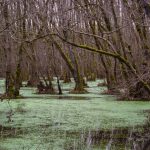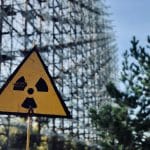1.
Once upon a time, I facilitated a creative workshop for adults. The criteria given to me for accepting the attendees boiled down to whether or not the applicants were talented, capable, and willing to do the work. All of the applicants were smart, capable, and had futures with great potential. Some also had mental illnesses or disabilities.
Although acceptance was supposed to be balanced on talent and drive, I later learned some of the workshop’s board members did not believe people with mental illnesses and disabilities should be allowed into the workshop, even though these people were capable and able to do the work.
Despite my anger about the ableism and elitism these board members espoused, I took a chance and moved forward with accepting an inclusive range of attendees, knowing I was risking my reputation. I took a chance on those students, despite what the broader culture, and the board, believed about people with mental illness or disabilities.
I know I could have played it safe and only accepted those who appeared to be obvious successes. I could have quit the job. But I didn’t. Taking this chance was too important to me.
The foundation of this decision goes back to the early 1950s in Boise, Idaho.
2.
Chance is an interesting word. It’s one of those English words that hold so many different meanings. Chance can mean the possibility of something happening, as in “there’s a chance of snow.” It can also mean something happening without any obvious design or intention, like “I ran into Mrs. Jones by chance.” It can also mean to do something, even though there is a risk or the outcome is uncertain, like, “I took a chance.”
I took a chance. I gave someone else a chance.
These are two of those weird English phrases I imagine are confusing to people who don’t grow up speaking English as a first language. My Ojibwe ancestors didn’t always grow up with English as their first language—they started with Ojibwemoyen and eventually, to survive the conquest of North America, Canadian French and ultimately English.
3.
Boise, Idaho, 1953.
It’s time for my blind Chippewa mother to start school. (At the time, my mother used the terms “blind” and “Chippewa.”) My grandparents had two options: send my mother away to a school for the blind or find a local school willing to enroll her. My mother being institutionalized in a federally-sponsored or Catholic-run Native American Boarding School, as had happened to my grandmother, was not an option. At this point, my grandparents and mother lived off-reservation and, given my grandfather was white, there was enough power in the family to ensure the privilege for education that had not been available to my great-grandmother.
My grandmother and her siblings were required to attend Native boarding schools. It was the Assimilation era; Indigenous children were sent to the boarding schools across the United States to turn them into “good white children” and, therefore, good citizens. When she was five, my grandmother left her beloved mother in Minnesota for an Native American boarding school in Wisconsin where she was educated by nuns. The separation from her mother and the extreme abuse she endured at the boarding school was so painful my grandmother never fully healed.
The public schools in Boise refused to enroll my mother. My grandmother tirelessly advocated for my mother, determined that my mother would have a better childhood than she’d had—my mother would not know poverty or the same abuse and separation from family. Finally, regardless of her painful childhood experiences with nuns at the boarding school, my grandmother approached the local private Catholic school. It took convincing, but the Mother Superior agreed to enroll my mother. My mother graduated as Salutatorian of her class and went on to complete a bachelor’s, master’s, and doctorate. She worked as a speech and language pathologist, typically in public schools, for four decades.
This is not a story about a Native girl with a disability who makes good.
This is a story about a mother who took a chance that the nuns she asked to teach her child would provide her child with a good education and not harm her child as she’d been harmed. This is a story about a mother who took a chance and a school administrator who took a chance in turn.
4.
There are events in families that ripple through the decades. The narratives about my grandmother’s separation from her family and her boarding school experiences were stories I listened to over and over again. The story about my grandmother searching for a school for my mother and finally finding success at the Catholic school was part of my childhood stories, alongside myths, fairy tales, and Disney.
Mostly, it was my grandmother who told these family stories. My mother was focused on another kind of storytelling.
5.
When I was ten, my mother introduced me to Ursula Le Guin with a well-read school library copy of The Wizard of Earthsea. Eleven brought a beat-up mass market paperback of Madeleine L’Engle’s A Wrinkle in Time, while twelve brought a pristine copy of Vonda McIntyre’s Dreamsnake. There were other beloved books too, but these books were extra special to my mother, and by extension, to me.
There is a thing that happens with the books we read as children. They imprint on our brains; they become a part of our DNA. The books my parents handed me when my brain was developing and discovering the world became a part of my blueprint for living my life.
My grandmother’s stories about her years at the Native boarding school in Wisconsin and later at Haskell in Kansas were also embedded within me. The story about my grandmother’s search for a school for my mother and the stories my mother read me are so deeply ingrained within me that the values inherent in the stories have inspired how I live in the world.
From Ged in The Wizard of Earthsea, I learned to be patient and take a chance on others, even if it seems my hopes are going nowhere, like when Ged waited on Ogion to teach him and it first seemed as if Ogion was offering nothing.
From Meg Murray in A Wrinkle in Time, I learned I was worth taking a chance on. Meg was flawed and so aware of and frustrated by her imperfections. But, if she was willing to take a chance on herself, she discovered she was the one who could save her father and brother.
From Snake in Dreamsnake, I learned it’s worth taking a chance on others, even if they don’t prove themselves out. Taking a chance on others—especially when it’s risky and even when things don’t go as planned—can lead to what ultimately needs to happen.
6.
I grew up in the mid-to-late 1980s. There wasn’t a lot of diversity in speculative fiction. Reading white women authors, especially feminist authors, was the diversity. Though they were already publishing, it wasn’t until the early 1990s that I was introduced to science fiction writers like Samuel Delaney and Octavia Butler, or magical realist writers like Isabell Allende and Louise Erdrich. At the time, most speculative fiction writers—the writers I read in Omni or who showed up on the Science Fiction and Fantasy shelves at our tiny local library or bookstore—were white, and usually men.
I wanted to write. Where was my place on the shelves?
We are living in a glorious age of speculative fiction where the bookshelves offer writers like N.K. Jemison, Amal El Motar, Nalo Hopkinson, Nnedi Okorafor, Victor LaValle, Ted Chiang, and Malinda Lo, to name a handful.
And there are Indigenous writers, like Stephen Graham Jones, Rebecca Roanhorse, Cynthia Leithich Smith, Cherie Dimaline, Eden Robinson, and Darcie Little Badger.
7.
The people I took a chance on in the workshop went on to do great things: pursued entrepreneurship, finished graduate school, wrote and published books. The sorts of resume builders our broader society considers successful. More importantly, also made friends, developed deeper relationships with themselves, discovered more joy. Became more fully themselves.
8.
A lot has changed for me over the past year—I’ve stepped out of my comfort zone: I wrote for a podcast, edited the script for another podcast, then voiced a character on a third. I wrote stories that were very different from my previous stories. I applied for and attended a writing-intensive run by one of my literary heroes. I’m writing a very personal essay that will be read by all kinds of people. It’s all been scary because, like Meg Murray, I’m very aware of my weaknesses.
And all the while, I’m asking, what if I take a chance? What if I take the hardest chance there is to take: What if I take a chance on myself?
What might happen?
Marguerite Croft (she/her) was born, reared, and came of age in Southern Idaho. Her academic background is in biomedical anthropology and American Indian Studies, and she’s worked in public health, education, the anthropology and paleontology departments in a natural history museum, tech, and publishing. She’s a graduate of Clarion West and has published short stories in a variety of magazines. Currently, she lives in the San Francisco Bay Area and provides story development and script editing for the Point Mystic podcast, focuses on her family, supports her communities, maintains a serious library habit, studies Ojibwe, and, of course, writes. You can find her on Twitter @MargueriteCroft and at www.MargueriteCroft.com.
Featured Image by Alma Snortum-Phelps on Unsplash






